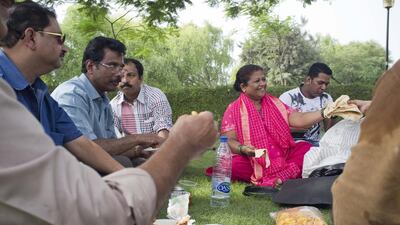A recent article on these pages by Khalid Al Ameri eloquently argued that success in the UAE "should be far more than having a luxury lifestyle". The article was written in response to the findings of a MasterCard survey, exploring cross-national definitions of success. The report suggested that, in the UAE, success was typically defined as "a way to fuel a lifestyle of luxury and enjoyment".
Firstly, I really don’t like the term “lifestyle”. I can visit a hairstylist, but can I visit a life-stylist? Or is a life-stylist just another word for a parent, a teacher or a psychotherapist? Using the word “style” also suggests we have an array of choices hanging in our existential wardrobes. Shall I live the life of a Parisian poet this year? Or should I dust off the old South American revolutionary lifestyle? I hear that the “Che Guevara” is back in fashion. Does my soul look big in this?
This now-debased term – lifestyle – actually comes to us from Alfred Adler, a physician, psychologist and cofounder of the psychoanalytic movement figureheaded by Sigmund Freud. Adler used the term “style of life” to refer to our unique, unconscious and relatively fixed ways of responding to, or avoiding, the main aspects of life: relationships, love, work and so on.
Today, the term is used to exaggerate or justify some minor aspect of a person’s life. For example: “he lives a rock’n’roll lifestyle”. This could just mean that he is bordering on alcoholism, and has issues facing up to responsibility. Similarly, “she lives an alternative lifestyle” could just mean she has some unusual body piercings, bizarre taste in music and attention-arresting make-up and fashion sense.
So, too, with the so-called “luxury lifestyle”, those living the materialistic dream will not necessarily have luxurious relationships, they may not have the finest mahogany parents, solid gold spouses, or even diamante-encrusted friends. Furthermore, their occupations may not be luxurious, they may even be non-existent: a kind of luxurious purposelessness. Life and existence cannot be reduced to objects. Things, however luxurious, do not make the man, or the woman, and they certainly don’t constitute a style of life, at least not in the Adlerian sense.
This is not to suggest that we should have an aversion to comfort or feel guilty for enjoying beautiful things. There is clearly a difference between a discerning appreciation of aesthetics and the mindless overconsumption of fancy goods. What fault is to be found in a fondness for the form of a beautifully crafted artefact? Are the connoisseur and the glutton the same creature?
But for me, the idea that shopping, or a fondness for expensive stuff, should be considered a lifestyle at all is nonsense. A lifestyle should not be made so narrow as to be defined by what objects we choose to buy. The danger is we lose sight of what is really important in life, and then validation through the possession of objects is all that is left – “I am what I own”.
Ultimately, a lifestyle isn’t about what we spend our cash on; it’s about how we spend our time and with whom we spend it. Wealth can often free up lots of time, either through hiring help, or purchasing an army of labour-saving devices. With little need to work, we can be left with unlimited leisure time. This is a gift and a curse, if we are unlucky it simply leads to the empty consumerism that some refer to as a luxury lifestyle.
A friend once told me about a conversation that took place between an American and a Bedouin from Mauritania. The American boasted about how luxurious and labour-free his life was: “I have a private jet, I can get from one side of the country to the other in six hours – a distance that would take you months.” Wide-eyed but wise, the Bedouin responded: “But what do you do with all the time you save?” The American guy was stumped.
Justin Thomas is an associate professor of psychology at Zayed University and author of Psychological Well- Being in the Gulf States
On Twitter: @jaytee156


